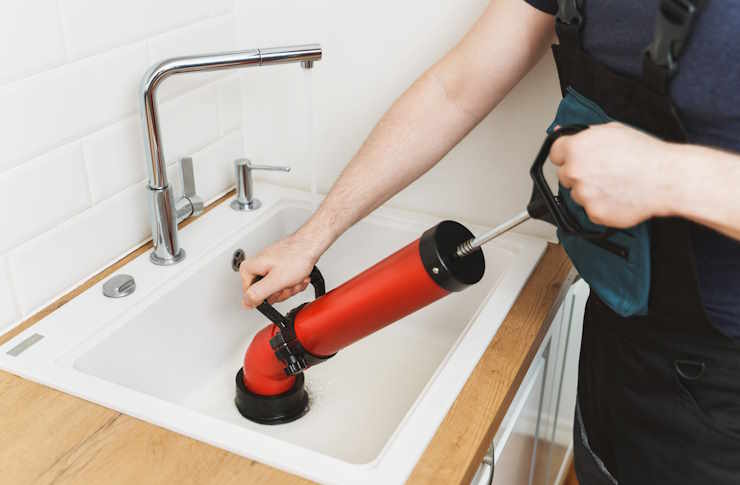appliance repair
When household appliances break down, they can disrupt daily routines and create unexpected stress. From refrigerators that stop cooling to washing machines that refuse to spin, appliance malfunctions affect the functionality of our homes and can lead to additional problems if left unaddressed. Understanding the basics of appliance repair—including when to attempt fixes yourself and when to call professionals—can save time, money, and prevent further damage to valuable household equipment.

Common Appliance Problems and Diagnostics
Before considering repair options, it’s important to identify the specific issue affecting your appliance. Refrigerators might develop cooling problems due to dirty condenser coils or faulty thermostats. Dishwashers often experience drainage issues caused by food debris blockages. Washing machines may leak because of worn pump seals or loose connections. Performing basic diagnostics involves checking power connections, listening for unusual noises, looking for visible damage, and consulting the appliance manual for troubleshooting guides. These preliminary steps help determine whether the issue requires professional attention or might be resolved with simple maintenance measures like cleaning filters or resetting electronic controls.
DIY vs. Professional Appliance Repair Solutions
Many homeowners face the decision between attempting repairs themselves or hiring professionals. DIY repairs can be appropriate for simple issues like replacing refrigerator door seals, cleaning dryer vents, or resetting circuit breakers. These tasks typically require minimal tools and technical knowledge. However, complex problems involving electrical systems, gas lines, or sealed refrigeration units often demand professional expertise. When considering DIY repairs, factors to evaluate include your technical ability, safety risks, warranty implications, and the potential cost of causing additional damage. Professional technicians bring specialized tools, diagnostic equipment, and experience that can efficiently address complicated mechanical or electronic failures without compromising the appliance’s integrity.
The Benefits of Professional Appliance Repair
Professional repair services offer multiple advantages when dealing with significant appliance malfunctions. Trained technicians can accurately diagnose problems that might not be immediately apparent to untrained eyes. They carry specialized parts and tools that aren’t typically available to consumers. Professional repairs often come with service guarantees that protect against recurring issues. Furthermore, certified technicians understand manufacturer specifications and can maintain appliance efficiency according to design standards. For major appliances representing substantial investments—like high-end refrigerators, washers, or cooking ranges—professional repairs help preserve functionality and extend operational lifespan. Additionally, professional technicians can identify potential issues before they become major problems, potentially saving money on more extensive repairs in the future.
Maintenance Practices to Prevent Appliance Breakdowns
Preventive maintenance significantly reduces the likelihood of unexpected appliance failures. Regular cleaning of refrigerator coils, dryer vents, and dishwasher filters removes debris that can impede performance and strain mechanical components. Checking and replacing worn door seals prevents energy waste and excessive strain on cooling or heating systems. Following manufacturer guidelines for appropriate use—such as not overloading washing machines or using suitable detergents—minimizes unnecessary wear. Some appliance professionals offer maintenance packages that include periodic inspections and tune-ups, which can identify potential problems before they lead to complete breakdowns. Simple practices like allowing appropriate clearance around appliances for ventilation and using surge protectors for electronics-heavy models can extend operational life considerably.
Choosing a Reliable Appliance Repair Service
Selecting the right repair provider requires careful consideration of several factors. Look for technicians with proper certification from recognized organizations like the Professional Service Association (PSA) or manufacturers’ authorized service programs. Verify business credentials through the Better Business Bureau and online review platforms to assess customer satisfaction patterns. Consider whether the service offers emergency repairs, provides written estimates before beginning work, and stands behind repairs with meaningful warranties. Ask about the availability of OEM (Original Equipment Manufacturer) parts versus aftermarket alternatives, as this affects both repair quality and cost. Local repair services often provide faster response times and may have better familiarity with regional issues that affect appliance performance, such as water quality or climate conditions.
Cost Considerations for Appliance Repair Services
The financial aspect of appliance repairs plays a significant role in decision-making. Repair costs typically include a service call fee (ranging from $50-$150), diagnosis charges, labor rates (usually $60-$130 per hour), and parts expenses. Complex repairs involving electronic control boards or sealed systems generally cost more than simple mechanical fixes.
| Appliance Type | Average Repair Cost Range | Common Issues |
|---|---|---|
| Refrigerator | $200-$500 | Cooling problems, ice maker failures, compressor issues |
| Washing Machine | $150-$400 | Drain pump failures, motor issues, control board problems |
| Dishwasher | $160-$310 | Drainage issues, spray arm blockage, door seal leaks |
| Oven/Range | $100-$430 | Heating element failures, thermostat issues, igniter problems |
| Dryer | $100-$400 | Heating element failures, belt replacements, thermostat issues |
Prices, rates, or cost estimates mentioned in this article are based on the latest available information but may change over time. Independent research is advised before making financial decisions.
When evaluating repair versus replacement, industry experts suggest considering the “50% rule”—if repair costs exceed half the price of a new appliance and the unit is more than halfway through its expected lifespan, replacement may be more economical. Most major appliances have expected lifespans of 10-15 years, though high-end models may last longer with proper maintenance.
Environmental Impact of Repair vs. Replacement
Choosing to repair rather than replace appliances offers environmental benefits worth considering. Extending an appliance’s operational life reduces landfill waste and conserves the resources required to manufacture new units. Major household appliances contain metals, plastics, electronic components, and sometimes hazardous materials that require proper disposal. When repairs are no longer viable, many communities offer appliance recycling programs that recover valuable materials and ensure proper handling of potentially harmful components. Some repair services also participate in environmentally responsible disposal of replaced parts, particularly those containing refrigerants or electronic waste. By maintaining and repairing appliances when possible, homeowners contribute to sustainability efforts while potentially saving money.




